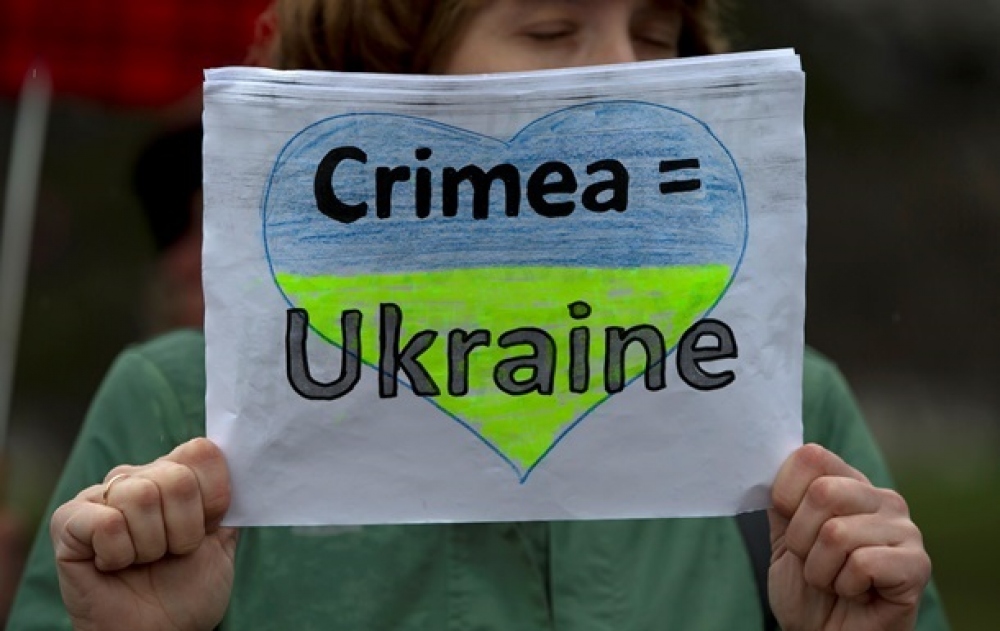Victor Pinchuk, one of the richest Ukrainian oligarchs, published an article in “The Wall Street Journal”. In the article he describes his vision of a possible reconciliation with Russia. Pinchuk suggests taking down return of Crimea from agenda for up to twenty years, so that this issue would not create obstacles on the way to war settlement in Donetsk and Luhansk regions. He also urges to suspend Ukraine’s European and Euro-Atlantic integration, i.e. to forget about the NATO aspirations, officially abandon hopes for the EU membership and restore Ukraine’s non-aligned status.
According to Ukrainian oligarch, these measures would pacify Russia and allow for conflict settlement. As his article was published in a renowned American media outlet, it could be perceived by many in the West as a Ukrainian “way of reconciliation”. However, many Ukrainians do not share Pinchuk’s opinion.
This scenario of “reconciliation by capitulation” has been harshly criticized by Ukrainian politicians, diplomats and experts. They listed numerous counterarguments to the Victor Pinchuk statement. Below you can find are some of them.
- Ivanna Klympush-Tsintsadze, Ukraine’s Vice Prime Minister for European and Euroatlantic integration, argued in her Facebook post that the non-aligned status supported by Pinchuk does not actually guarantee security. Russia has been planning its assault on Ukraine — and implemented the plan — when the country was non-aligned, she reminds. “That’s why we have one strategic goal — NATO membership. We could achieve it by means of creating powerful army, and a democratic country,” noted Klympush-Tsintsadze. She also stressed that it would be unacceptable to give up on Crimea because of Donbas, as both territories are inhabited by Ukrainians. Summarizing the Vice PM said “it is not us who should capitulate, the aggressor should do this.”
- Dmytro Kuleba, Permanent Representative of Ukraine to the Council of Europe, stressed that Pinchuk was deliberately putting out the fallacious messages. Kuleba argued that all Pinchuk’s arguments were based on a false assumption that Russia was ready to guarantee Ukraine’s stability if Ukraine backs down. Pinchuk, “as a clever and educated person”, certainly understands that this argument is misleading, Kuleba says. “However, he knowingly writes it would be possible,” he emphasized. In his opinion, Pinchuk also manipulates with an argument that Ukraine should inevitably look for an agreement with Russia, but completely forgets about the red lines in the negotiations. Pinchuk simply wants to go back in time, but this would result in Ukraine existing “legally without Crimea, effectively without Donbas and practically without any chance for decent future,” concludes the diplomat.
- Hanna Hopko, the head of the Verkhovna Rada Committee on Foreign Affairs, emphasized that even if a compromise with Russia was on the table, it should have been backed by rebuilding the trust. Russian troops leaving Donbas and giving Ukraine the control over its borders back would be a first step. Hopko stresses that Russia also has to make concessions. “Any elections on the occupied territories are not possible until these conditions are fulfilled,” Hopko noted.
- As stated by Refat Chubarov, Ukrainian MP and the Chairman of the Mejlis of the Crimean Tatar People, Pinchuk’s “painful compromise” is actually an invitation for Ukraine—including Crimea and Crimean Tatars — to capitulate. Chubarov points out that Pinchuk suggested Ukrainians to renounce their national dignity and destroy their faith in the capacity of their own state.
- Aider Mudzhabayev, deputy director of Crimean ATR channel, assumes that Pinchuk put forward the “soft capitulation” idea not to make it actually happen but to trigger debates in the Ukrainian media. Mudzhabayev predicts that more “expert statements” on “soft surrender” are about to come which will contain similar messages about the need to rebuild broken ties to Russia. “Russian independent intellectuals,” in their turn, would “want to help” and develop this narrative too. However, problems provoked by Russia never dissolve themselves, Mudzhabayes says. That is why, in his opinion, this new discourse should be seen as serving only one goal: to impellent Putin’s aspirations of regaining his control over Ukraine.
Prepared by Vitalii Rybak, Internews Ukraine, UkraineWorld group





